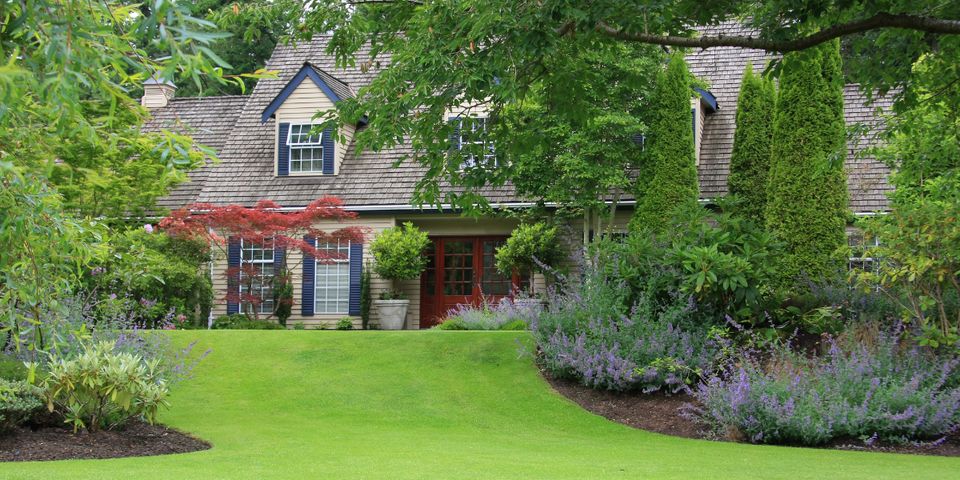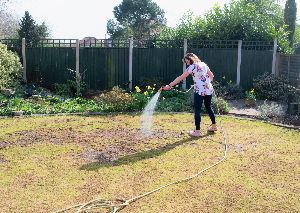
Regularly re-seeding your lawn allows you to address bare and sparse patches, encouraging lush and even growth. However, simply sowing grass seeds alone isn't enough if you want to see top-quality results. The actions you take in the days, weeks, and months after you re-seed can make a big difference in the quality of growth you see. The following guide explores the lawn care steps you can take to maximize the impact of re-seeding.
Right After Re-Seeding

Fresh grass seedlings must be protected against potential damage, so avoid foot traffic on your lawn by keeping pets and kids away from re-seeded areas. To encourage germination in these early stages, keep the ground damp in the first two weeks. Water for 20 minutes every day to maintain moisture. However, take care not to overwater, as this can wash away the seeds and fertilizer you applied during the re-seeding process.
Three & Four Weeks After Re-Seeding
By the time you've reached the third and fourth weeks after re-seeding, grass should have started germinating. You can cut watering to three to four times per week at this point. By now, you may also notice weeds starting to sprout. Hand-pull these to keep them from choking out the fresh seedlings. It's best to avoid using herbicides or other harsh lawn care chemicals that might interfere with new growth for the time being.
One Month & Beyond
By now, your grass should be long enough to mow. Wait until the new seedlings have reached a height at least one-third higher than the desired post-mowing height before mowing for the first time. Further, when you cut, make sure you don't remove more than one-third of the grass. Finally, maintain your regular fertilization schedule going forward. A pre-winter and spring fertilizer are usually the bare minimum needed. Your precise fertilization needs will depend on your lawn's soil health.
For help with your lawn care after re-seeding, trust Nature Plus Lawn & Irrigation of Cincinnati, OH. These professionals provide every new client with a personalized soil test, allowing them to determine the lawn's exact fertilization needs. Visit the website to learn more about their services, and call (513) 755-9434 to schedule an appointment.
About the Business
Have a question? Ask the experts!
Send your question

